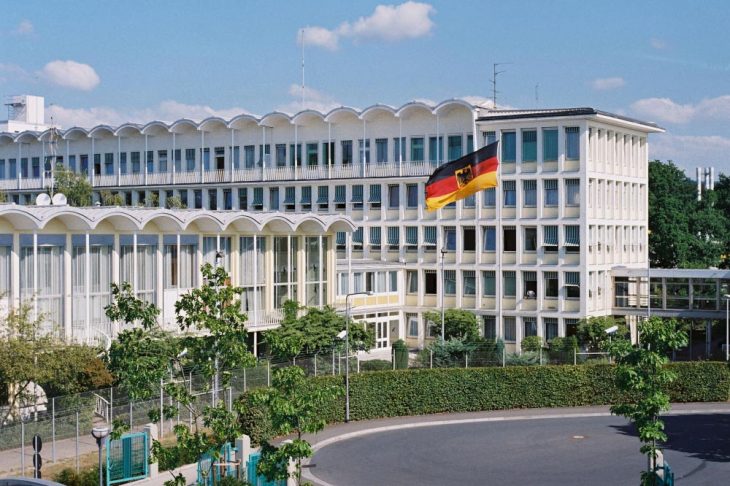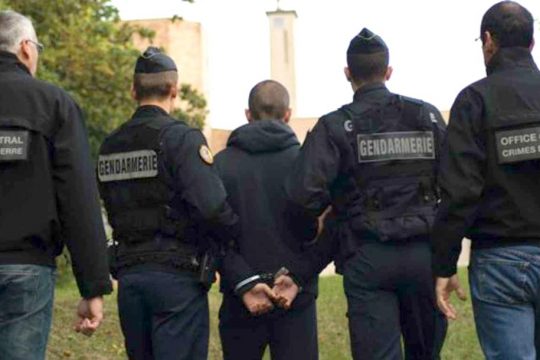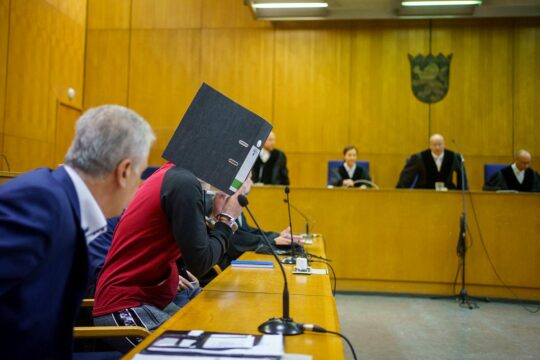When the judges of the Higher Regional Court in South German town of Stuttgart handed down convictions in the trial of two leaders of a Rwandan armed group in 2015, the judgment was also a milestone for the team of the ZBKV, the specialised unit of the German Federal Police tasked with investigating international crimes. The Rwandans, Ignace Murwanashyaka and Straton Musoni, were leaders of the FDLR armed group [Democratic Forces for the liberation of Rwanda] which has allegedly been committing mass rapes, murder and other grave crimes in East Congo over the course of many years.
Murwanashyaka was sentenced to 13 years in prison over four counts of being an accessory to war crimes, and for leading a terrorist organisation. Musoni was found guilty of leading a terrorist organization but acquitted of war crimes and crimes against humanity.
The training grounds of Rwanda and Congo
Last December, the German Federal Court of Justice partially overturned the verdict. It raised doubts about the war crimes conviction of Murwanashyaka and ordered a retrial.
For the ZBKV, the decision was a disappointment since the prosecution of the FDLR leaders was one of its most important cases. It was the first trial held in Germany based on the Code of Crimes against International Law (CCAIL), which enables German authorities to prosecute crimes under the principle of universal jurisdiction. And it was the longest trial in the history of the south German court.
Klaus Zorn, head of the ZBKV, recalls the challenges when the German investigators went to Goma in Eastern Congo to interview victims and witnesses of FDLR crimes. “An all-female team had to cross the border from Rwanda every day to meet rape victims who lived in the rural Kivu provinces in Congo,” Zorn wrote in an article 2017. The team received protection from the UN mission MONUSCO and was escorted through Goma, but was under constant threat from FDLR fighters and supporters.
The ZBKV investigators pulled together a case against Murwanashyaka, the FDLR president, and Musoni, his then-deputy, who were both living in Germany at the time. In addition, the ZBKV investigated 15 lower-ranking FDLR supporters in other parts of Germany. In Frankfurt, they brought the case against Rwandan mayor Onesphore Rwabukombe to trial. Rwanda and the Democratic Republic of the Congo (DRC) have been focus countries for the ZBKV since 2009, explained Zorn.
A broad jurisdiction under the control of the prosecutor
The unit was established in 2003 as part of the Federal Criminal Police Office and is comprised of 17 staff (as of 2017). ZBKV is the German acronym of the lengthy name Central Unit for the Fight against War Crimes and further Offences pursuant to the Code of Crimes against International Law. Last August, the ZBKV was upgraded to an independent unit within the Federal Criminal Police in order for it to be able to deal with a continuous increase of the workload. In the two years between 2013 and 2015 alone, the number of leads increased by 8,500 percent, according to official records of parliament.
In the last years, it has become a leading institution for the domestic prosecution of grave crimes in Europe, says Maria Elena Vignoli, a researcher at Human Rights Watch. In the conflict in Syria, for example, the German and Swedish units were the only ones which were able to produce trials.
“Germany is one of the few countries where the laws allow for pure universal jurisdiction”, says Vignoli. German authorities can technically prosecute genocide, crimes against humanity and war crimes in any country of the world. The law does not require a connection with Germany.
“However, the law gives a broad discretionary power to the prosecutor,” says Vignoli. The provision was introduced to avoid an overload of cases with no link to Germany, but has been criticised by German international criminal law experts like Gerhard Werle and Wolfgang Kaleck because it doesn’t allow victims to challenge a decision to dismiss a case.
Focus on Syria
In the investigations phase, the ZBKV proceeds similarly to the Office of the Prosecutor at the International Criminal Court in The Hague. It reviews open sources like blogs, media and NGO reports, and can decide to open a “Strukturermittlungsverfahren” – a structural or background investigation. At this stage, no suspect has been identified yet.
Another important source have become tips from immigration authorities. “German authorities have built efficient collaborations in ways other countries haven’t,” says Vignoli, who compared the German and Swedish war crimes units in a 2017 report for Human Rights Watch. Immigration authorities, for example, introduced a strict categorisation and standard questions and guidelines for officers. During the interviews, all asylum seekers from Syria and Iraq are asked whether they have been victim, witness or perpetrator of grave crimes, and if they know perpetrators of such crimes. The ZBKV also works closely with liaison officers in the regional State Security authorities, for example to contact victims and witnesses.
As a consequence of the large influx of migrants in 2015 and 2016, the ZBKV has been overwhelmed with tips of potential war crimes and crimes against humanity. Between 2015 and 2017 it received more than 4,000 tips. (In 2015 immigration authorities forwarded more than 1,500 leads related to grave crimes committed in Syria and nearly 800 in 2016.)
Immigration authorities, in collaboration with the Federal Police, have introduced a categorisation for the structural investigations in Syria and Iraq, and are forwarding the tips according to a five-tier system. Category 1 refers to leads where asylum seekers provided concrete information on war crimes allegedly committed by suspects living in Germany or Europe. These tips are processed as a priority. Category 5, the lowest priority, are general tips relating to grave crimes.
High-profile target
According to the annual universal jurisdiction report “Make Way for Justice” by human rights organisations TRIAL International, FIDH, ECCHR, REDRESS and FIBGAR, Germany has completed at least four trials under the principle of universal jurisdiction. In September, the leader of a militia in Aleppo, Ibrahim Al F., was sentenced to life in prison over torture, war crimes and other acts. In 2017, a court in Berlin convicted the Iraqi government soldier Rami K. of war crimes and sentenced him to 20 month suspended sentence. K. had been posing with severed heads in Iraq and later sought asylum in Germany. Also in 2017, militia member Suliman al S. was convicted to three and a half years imprisonment for kidnapping a Canadian UN staff member in Syria. The re-trial of the case began on 14 December.
Numerous cases are under investigation, in the pre-trial or trial phase. Most of them concern crimes in Syria. The latest indictment, made public on 28 December, concerns the case of Jennifer W., a German national who is accused of having travelled to Iraq where she allegedly held a 5-year old girl as a slave and let her die of thirst.
In one of the major breakthroughs so far, the Federal Court of Justice issued an arrest warrant against Jamil Hassan, head of the Syrian Air Force Intelligence Service, in June. Hassan is one of the most senior representatives of the Syrian regime under investigation for war crimes and crimes against humanity. “Germany signalizes its readiness to engage in meaningful investigations and prosecutions of grave human rights violations,” said Wolfgang Kaleck, founder of the European Center for Constitutional and Human Rights (ECCHR), who filed the criminal complaint together with Syrian activists and lawyers. “Judicial authorities in other states ought to follow such a step by the German judiciary.” And they did: In November, France issued three arrest warrants against senior government officials, including Hassan.







